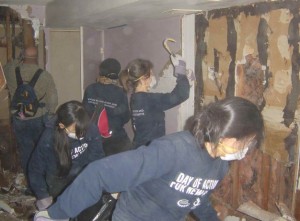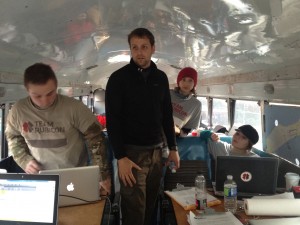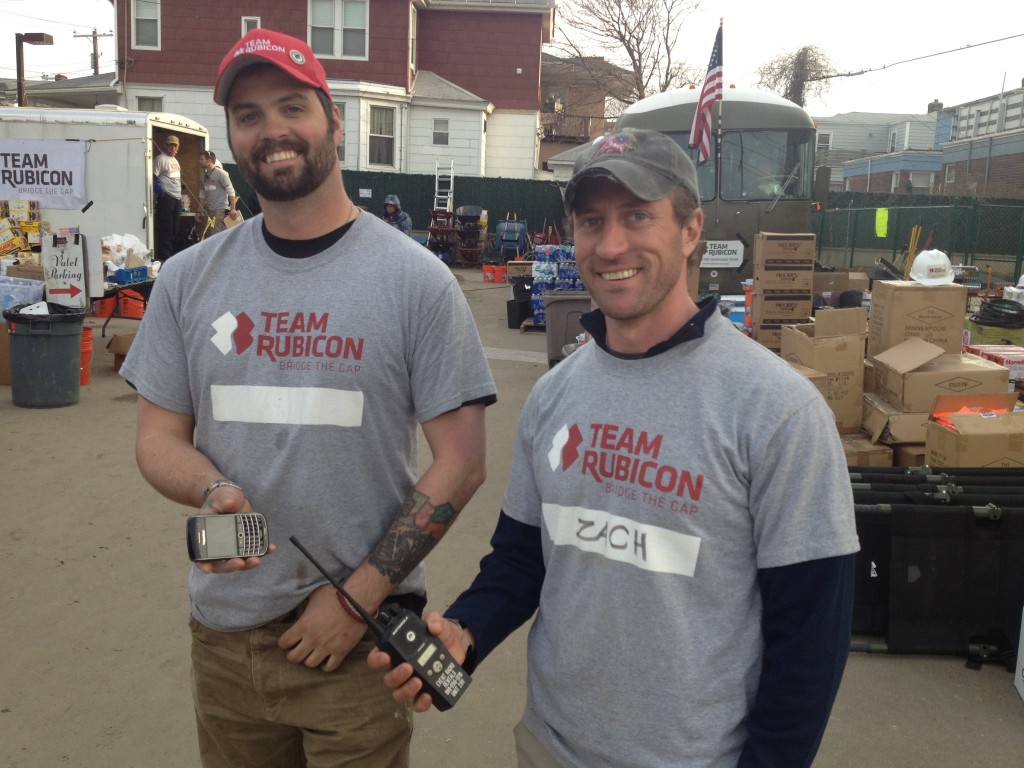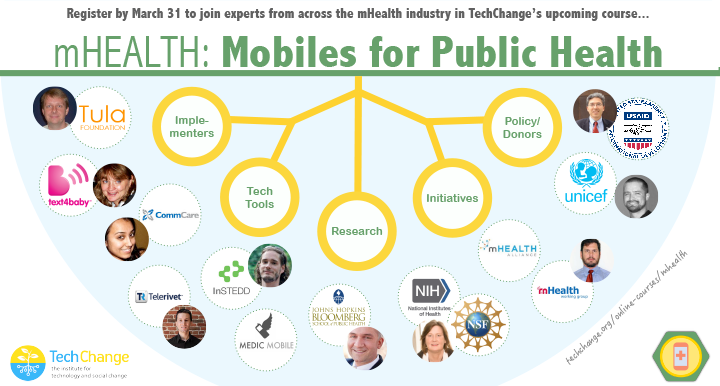“Team Rubicon is doing for disaster response what the Obama team did for political campaigns,” said Jonathan Morgenstein while taking a break from tearing down moldy drywall in hurricane-damaged Rockaway, Brooklyn. A New York native and US Marine Corps veteran who served two tours in Iraq, Morgenstein had spent the last month working on the campaign trail with Veterans and Military Families for Obama. He was referring not to the nearly fifty volunteers he was coordinating that afternoon, but rather the sophisticated software back-end that he was relying on to provide the correct information attached to the clipboard he was carrying. In the same way that better technology such as “Narwhal” had been credited with assisting him only weeks earlier for turning out more volunteers, donors and voters than in 2008 for Obama (“When The Nerds Go Marching In,” The Atlantic, 11/16/12), it was now playing a core role in coordinating disaster response in New York.
And on November 18, Morgenstein needed the help. In collaboration with Team Rubicon, he was responsible for supervising 48 Clinton Foundation volunteers to gut ten hurricane-damaged homes in preparation for their restoration by contractors. Morgenstein was one of hundreds of volunteers helping out with Team Rubicon during the Clinton Global Initiative’s “Day of Action for New York,” which pushed Team Rubicon organizing capacity to the limit. While it’s difficult to estimate exactly how much value has been returned to the community, gutting just one of the houses was estimated at $5,000-$8,000 for a homeowner without insurance (in this case a 91-year-old), making a direct value-add beyond food and shelter relief. And each house was tied to a work order and a map on Morgenstein’s clip board, just like while canvassing before the election.
But this particular software by Palantir Technologies wasn’t designed for campaigns, rather having been used recently for finding IEDs in war zones like Iraq and Afghanistan. According to a post on CNN (10/4/12), Palantir “software ties together intelligence data to improve information for troops about the possible location of roadside bombs planted by insurgents.” Nonetheless, it was also a perfect fit for an organization like Team Rubicon, which “unites the skills and experiences of military veterans with medical professionals to rapidly deploy emergency response teams into crisis situations.” While the outpouring of people wanting to help has been heartening, new problems arise when organizing large groups of ad-hoc volunteers.
Fortunately, the tech fit the mission. Far from having an existing organizational structure or a known set of capabilities (like a proper military unit), this had been a seat-of-the-pants improvised human logistics, making those most in need with those most capable. Palantir’s philanthropic team had been discussing doing some disaster-relief simulations to test its capabilities for this use. When Sandy suddenly threatened the eastern seaboard, the drill became the real thing, with Palantir scrambling to set up the server infrastructure and mobile handsets for Team Rubicon’s use. (“Philanthropy Engineers Embed with Team Rubicon for Hurricane Sandy Relief,” Palantir Blog, 11/14/12)
The setup was ready by November 4th, just as recovery operations were swinging into gear. Imagined as operating system for data problems, Palantir’s software was able to pull in information from multiple sources of data, fuse it together into a coherent picture of the state of the peninsula, and then allow Team Rubicon operators to efficiently dispatch volunteers (say, a chainsaw team) to where they were needed the most (a list of the fifteen biggest downed trees). But tech isn’t perfect. “Check the data. At the end of the day, just because it’s in Palantir doesn’t make it right.” stated Brian Fishman of Palantir from inside the bus HQ. “Circumstances change, and a functional technology infrastructure requires regular updates to the data in the system.”
So, will Palantir and Team Rubicon change the way organizations think about disaster response? “I don’t know, maybe,” stated Morgenstein, “In the military we say, ‘Amateurs talk strategy, pros talk logistics’. These tech guys have made the logistics a lot easier at the operational level, and the military culture you see in Team Rubicon of delegating decision-making downwards to the person closest to the problem, is perfectly suited to an operation like this.”
What we do know, however, is that putting the right tools in the right hands has the potential to create a team where the whole is greater than the sum of the parts. With Palantir and Team Rubicon, response operations will continue to iterate and improve over time, with the ultimate goal being to develop better response mechanisms for the next time disaster strikes. The best indicator of Team Rubicon as a learning organization may have nothing to do with the technology. At the end of the “Day of Action,” our team leader Zach (pictured, below right) turned to the group and asked us: “What could we do differently? If you see something you think we could be doing better, please let us know so that we can keep getting better at this.” Even when it comes to disaster response, tech is only ten percent.
TechChange provides online training in Tech Tools for Emergency Management. If you’re interested in learning more, consider applying for our next course. Class starts Jan. 14!
Interested in joining Team Rubicon? Please consider donating time or money to further their work. Learn more about Team Rubicon.







